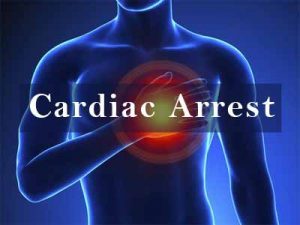- Home
- Editorial
- News
- Practice Guidelines
- Anesthesiology Guidelines
- Cancer Guidelines
- Cardiac Sciences Guidelines
- Critical Care Guidelines
- Dentistry Guidelines
- Dermatology Guidelines
- Diabetes and Endo Guidelines
- Diagnostics Guidelines
- ENT Guidelines
- Featured Practice Guidelines
- Gastroenterology Guidelines
- Geriatrics Guidelines
- Medicine Guidelines
- Nephrology Guidelines
- Neurosciences Guidelines
- Obs and Gynae Guidelines
- Ophthalmology Guidelines
- Orthopaedics Guidelines
- Paediatrics Guidelines
- Psychiatry Guidelines
- Pulmonology Guidelines
- Radiology Guidelines
- Surgery Guidelines
- Urology Guidelines
Cardiac arrest induced by the intentional ingestion of mirtazapine and boric acid: a case report

Dr Hiroki Nagasawa at Department of Acute Critical Care Medicine, Shizuoka Hospital, Juntendo University, City Shizuoka, Japan and colleagues have reported a rare case of Cardiac arrest induced by the intentional ingestion of boric acid and mirtazapine. The case has appeared in the Journal of Medical Case Reports.
Mirtazapine has a good tolerability and safety profile that demonstrates several benefits over other antidepressants and it is associated with few fatalities. Mirtazapine has a good tolerability and safety profile that demonstrates several benefits over other antidepressants and it is associated with few fatalities Boric acid is an odourless white powder that is generally not recognized as a poisonous substance. However, if ingested in massive quantities, boric acid can have potentially fatal effects, including metabolic acidosis, acute renal failure, and heart failure.
Our patient was a 49-year-old Japanese woman with a history of depression; she was found in an unconscious state after ingesting boric acid (unknown amount), mirtazapine (1950 mg), and sennosides (780 mg). On arrival, she was in a deep coma with marked hypotension induced by atrial fibrillation, tachycardia, and diffuse hypokinetic cardiac motion. She had systemic diffuse erythema. Her serum concentrations of boric acid and mirtazapine on arrival were 560.49 mg/L and 1270 ng/mL, respectively. She experienced repeated cardiac arrest and was therefore treated with tracheal intubation, mechanical ventilation, percutaneous cardiopulmonary bypass, and continuous hemodialysis filtration. Stable circulation and respiration and a normal kidney function were finally obtained and she was transferred to a local medical facility in a persistent unconscious state.
This is the first case of a return of spontaneous circulation after cardiac arrest induced by the intentional ingestion of boric acid and mirtazapine, requiring percutaneous cardiopulmonary bypass for survival. To maintain cerebral perfusion during percutaneous cardiopulmonary bypass, even in a prolonged state of cardiac arrest induced by overdose, is medically, ethically, and economically challenging.
For more details click on the link: https://doi.org/10.1186/s13256-019-2079-7

Disclaimer: This site is primarily intended for healthcare professionals. Any content/information on this website does not replace the advice of medical and/or health professionals and should not be construed as medical/diagnostic advice/endorsement or prescription. Use of this site is subject to our terms of use, privacy policy, advertisement policy. © 2020 Minerva Medical Treatment Pvt Ltd